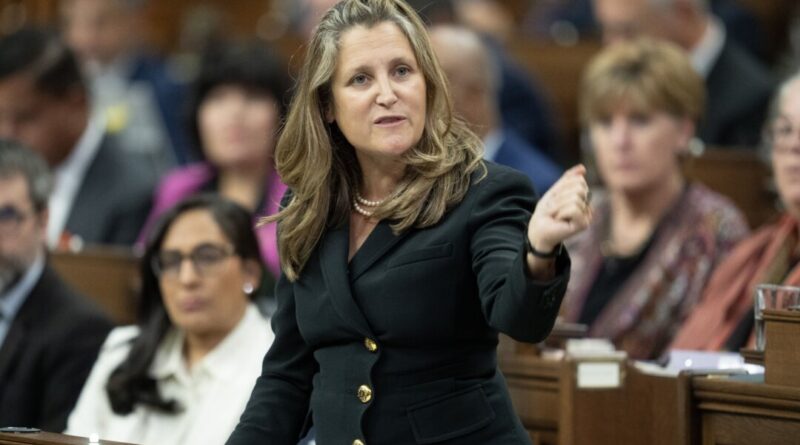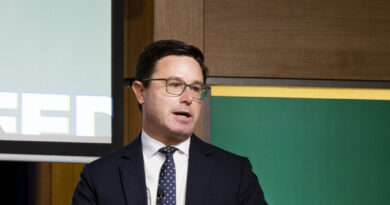Responses from Various Parties on Trump’s Tariff Threat
Members of Parliament convened for an urgent discussion this week to address the looming threat of tariffs from U.S. President-elect Donald Trump. The session saw appeals for unity and political critiques against opponents.
Despite the calls for a cohesive response to the situation, MPs frequently resorted to attributing the predicament Canada finds itself in to past or present policies.
Following Trump’s announcement on Nov. 25 regarding a 25 percent tariff on all goods from Canada and Mexico, Canadian officials have been scrambling to address the issue as he plans to implement the measures on his first day in office late January.
MPs engaged in a debate on Nov. 26 regarding the tariff threat after a motion proposed by NDP MP Brian Masse was approved. Masse, representing a Windsor constituency heavily reliant on the auto industry, led the discussion.
Canada ‘United’
The pressure from Trump’s tariff threat mainly falls on Deputy Prime Minister and Finance Minister Chrystia Freeland, who leads a special cabinet committee to handle the situation. Previously, Freeland had overseen the NAFTA renegotiations for Canada during Trump’s tenure.
During the parliamentary debate, Freeland emphasized the strength of the relationship with the United States, stressing that border security and integrity are their government’s top priorities.
Freeland highlighted that the items Canada exports to the U.S. are essential to its broad trade relationship, including oil, electricity, and crucial minerals and metals.
She stressed the importance of a “Team Canada” approach to address the tariff threat, emphasizing the need for unity in the country.
Conservative Party Leader Pierre Poilievre supported Trump’s priority of putting Americans first, asserting that he would also prioritize Canadians. He underscored the significance of maintaining the successful trade relationship between the two nations.
Similar to Freeland, Poilievre pointed out the robust energy connections between Canada and the U.S., suggesting that Trump should pay attention to Canadian oil imports if he intends to fulfill his promise of reducing gas prices. Canada is the largest source of oil imports for the U.S.
Poilievre rejected calls for diversifying Canada’s trade partners, cautioning against China’s economic slowdown due to its governmental policies. He emphasized the enduring power of American capitalism over other economic forces in the world.
Amid Canada’s weakened economy, Poilievre urged for tax cuts instead of hikes to enhance competitiveness, particularly in light of the tariff threat.
Bloc Québécois MP Mario Simard criticized Poilievre’s “Canada first” stance, characterizing it as simplistic. He highlighted Quebec’s lack of favorable treatment in trade talks and the challenges faced by its forestry industry due to U.S. tariffs.
Discussing the border issue raised by Trump, Simard acknowledged the problems but critiqued the politicization by the U.S. over time.
The NDP’s Masse denounced Trump’s threat as a bullying tactic, calling for a united approach from Canada to address the situation and avoid potential economic setbacks.
Expressing concerns about job losses and economic ramifications if the tariffs are imposed, Masse advocated for a comprehensive strategy involving labor unions and civil society.
The NDP stressed that Canada’s border challenges should not be conflated with Mexico’s, highlighting what they see as the U.S.’s politicization of the border situation.



